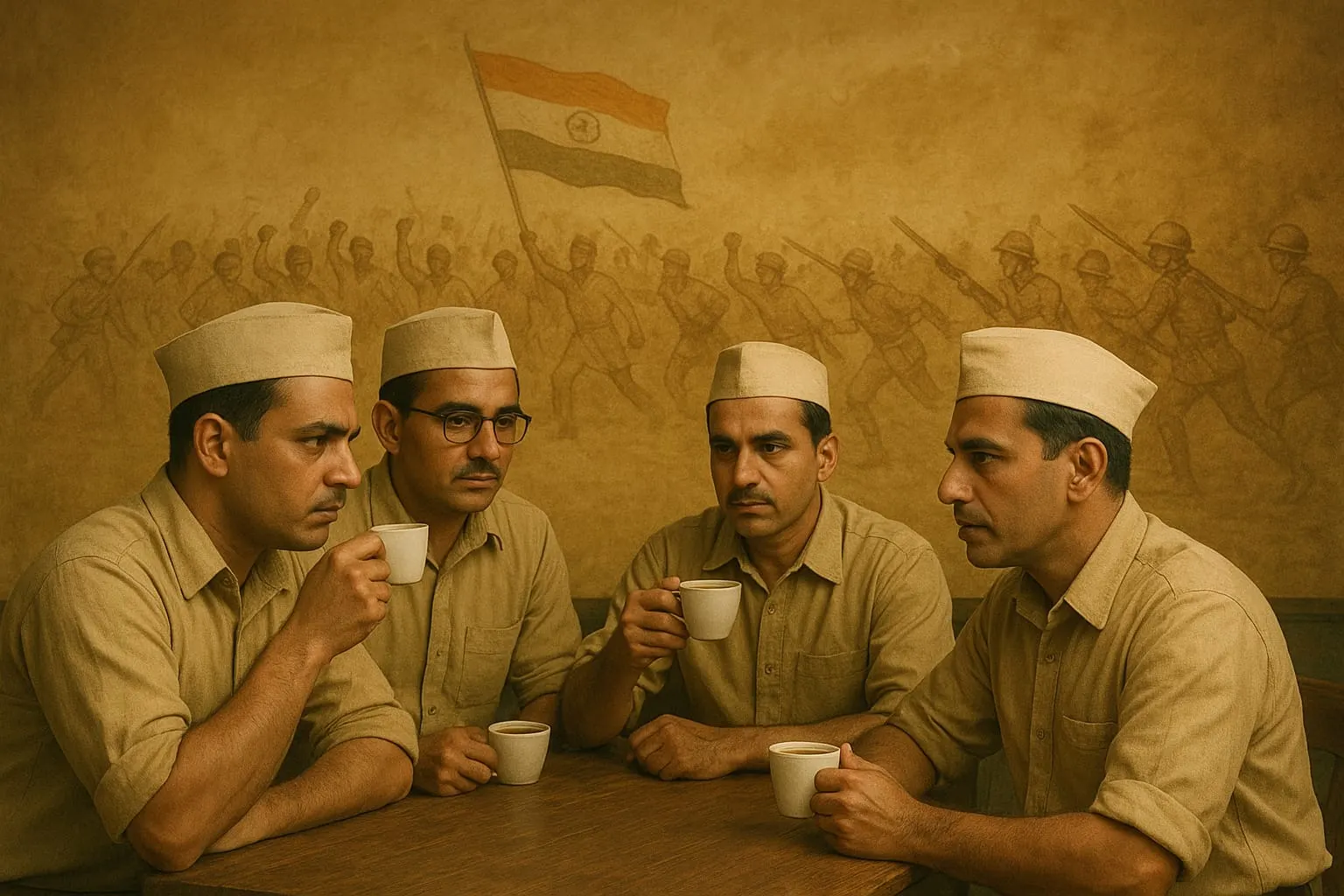| Title | The Freedom Movement & The RSS: A Story of Betrayal |
|---|---|
| Author | Shamsul Islam |
| Category | indian nationalism |
| Number of Pages | 33 |
| Language | English |
| File Size | 141. KB |
| File Type | |
| Country of Publication | India |
| Main Topics | Preface, the Freedom Movement and the Rss , Challenging Rss Narratives on Nationalism, Relying on Rss's Own Documents, the 1999 Postage Stamp: Rewriting History, Dr. Hedgewar's Early Congress Involvement and Shift to Hindutva, the Ulterior Motive Behind Hedgewar's Salt Satyagraha Participation, Rss Ideology: Dividing the Anti-imperialist Front, Questions for Rss: Movements, Repression, and Martyrs, Roots of Hindu-muslim Unity in 1857 and Non-cooperation, The Perils of Communalism in the Mid-1920s, Hedgewar's Formative Years and Influences, Rss Formation: A Response to Perceived 'disloyalty' of Minorities, Hate Campaign Over Anti-british Struggle: Rss in the Late 1920s, The Simon Commission Boycott and Imperialist Divide-and-rule, Archival Gaps: Why No Rss Records of Anti-british Role?, Golwalkar's Rationale: Prioritizing Routine Over Revolution, the Rss and Key Freedom Milestones: A Pattern of Absence, Communal Poison in the Nationalist Well, From Hedgewar to Golwalkar: Ideological Continuity, |
Summary Note of this Document
Overview
A detailed examination of the Rashtriya Swayamsevak Sangh (RSS) and its works (or lack of works) in the fight for freedom against British imperialism in India is the focus of the 33-page pamphlet published by Joshi-Adhikari Institute of Social Studies, first edition August 1999 (ISBN: 81-87638-02-8). Author Shamsul Islam refutes the narrative with the help of RSS's internal documents, speeches, and biographies, to demonstrate that the organization, formed in 1925, was not only indifferent to the anti-colonial movement but actually opposed it by fomenting communal division and propagating the ideology of Hindu Rashtra.
Key Points
Preface (Page 2)
The RSS portrays itself as the epitome of Indian nationalism and patriotism, a story that the people involved in the freedom movement dispute. The pamphlet is intended to reveal this by making the RSS sources speak for themselves as they disclose the organization's silence towards the atrocities under British rule and its attempts at disrupting the united anti-imperialist resistance. It provides a thematic index of the references of the RSS leaders to the freedom struggle that is appended.
Main Argument (Pages 3–5)
A postage stamp was issued by the 1999 BJP government, led by Prime Minister Atal Behari Vajpayee, to honor Dr. K. B. Hedgewar, the founder of RSS, as a "freedom fighter" on his 110th birth anniversary (March 18, 1999). The author finds this to be a falsification of the facts, asserting that the examples cited in the footnotes (e.g., jail terms in 1920–21 for Khilafat support and 1930 for Salt Satyagraha) were of Gandhi as a Congress leader and not of Hedgewar as an RSS chief. Formally, the RSS was not a part of such movements as the Salt Satyagraha, and it was a tactic of Hedgewar to gain the leadership delegation from Congress for RSS in the course of recruiting Congress cadres at the time of his participation in 1930. This shows that the organization had a repertoire of breaking the unity pattern, not unlike Jinnah’s communal split. Dual membership with the RSS was prohibited by Congress in 1934.
The pamphlet states that during the period when Hindus and Muslims were joining forces for revolts and movements, like the 1857 Revolt and the Non-Cooperation Movement, the RSS was inactive. Later, the pamphlet claims the RSS drew ideas from the Hindu Mahasabha and figures like B.S. Moonje. Instead of fighting the British, they focused on spreading negative propaganda about minorities.

|
Views of the RSS Leadership
Leaders like M.S. Golwalkar argued against participation in movements (e.g., Quit India 1942) and stressed the importance of "routine work." In his writings, Golwalkar held Nazi racial policies as the ideal model for India and required that minorities adopt the majority culture or be relegated to a lower class, without any reference to or critique of British rule.
Appendix (Pages 31–32)
A thematic index of RSS literature (1925–1947) indicates:
No references critical of British rule (0).
No appreciation of the freedom movement or martyrs (0).
74 references expressing contempt for minorities.
16 references praising the British. This emphasizes the RSS’s anti-freedom stance.
Conclusion
The RSS’s "dubious role" led to the division of the freedom movement, did not produce any martyrs, and was silent on the launching of anti-British campaigns. The BJP’s depiction of the RSS as a contributor to the fight is evaluated as incorrect and primarily due to its communal ideology.
Tone and Purpose
The booklet is polemical and leftist, intending to counter the RSS's post-Independence patriotism narrative, especially in the context of the 1999 stamp event. It uses the RSS’s records to argue that the organization concentrated on promoting Hindu supremacy at the expense of India's liberation struggle.
Historical Debate
The pamphlet vehemently accuses the RSS of betrayal, but historians' views differ. Critics concur with the booklet that the RSS cannot be counted for anti-British activism, whereas defenders point to the contributions of individual members and cultural patriotism. Even-handed sources suggest that the RSS was more concerned with Hindutva than initiating a mass anti-colonial movement, reflecting a polarized debate.